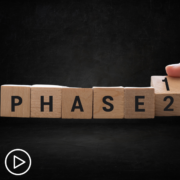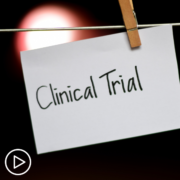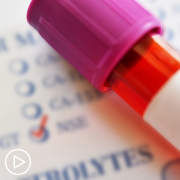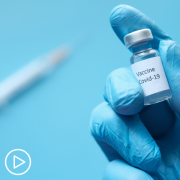CLL Clinical Trials: What Are the Phases?
CLL Clinical Trials: What Are the Phases? from Patient Empowerment Network on Vimeo.
CLL clinical trials have different phases, but what happens in each phase? CLL expert Dr. Adam Kittai explains the goal of each phase in relation to research and patient care.
Dr. Adam Kittai is a hematologist and an assistant professor at the The Ohio State University Comprehensive Cancer Center – The James. Learn more about Dr. Kittai, here.
See More from CLL Clinical Trials 201
Related Resources:
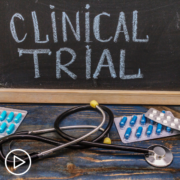
|
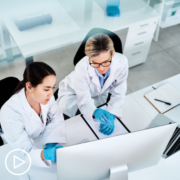
|

|
Transcript:
Katherine:
Let’s talk a bit about how trials work, starting with the phases. What happens at each phase?
Dr. Kittai:
There are actually four phases of clinical trials, although three phases are typically what’s talked about. So, Phase I is when we are first introducing the new medication, the combination, or the old medication in a new scenario for the first time in a human being.
Phase one encompasses a lot of different things. It could be a first in-human phase one, where we’re giving the drug for the first time in a human being. It could be, as I said, the combination of drugs being used for the first time in a human being. Or it could be that we have this drug that works for this other cancer and we’re trying it out on this new cancer. So, we might have experience with this drug in another scenario, but not in the scenario we’re trying to do.
And the primary purpose of the phase one clinical trial is to see if it’s safe. So, that’s the primary purpose of a phase one clinical trial – see if this new medication, this old medication in this new scenario, or this new combination is safe to use going forward.
Katherine:
Right.
Dr. Kittai:
We are able to see if it works to a small degree in the phase one trial, but typically these trials are very small with somewhere between 10 to 50 patients. And so, it’s hard to know how well this works by looking at such a small amount of patients.
Once the Phase I trial goes forward, we usually go onto Phase II. So, one of the other points about Phase I is to determine the correct dose. Usually in phase ones, we increase the dose of the drug slowly until it meets some sort of toxicity cut-off for our patients. So, once that dose is discovered, then we move onto Phase II, and Phase II is usually a small study, usually about 50-100 patients where we’re looking at preliminary efficacy, to see if this drug, this new combination, or the drug in a new scenario, is actually working.
And so, Phase II will tell us we think it’s working and if it looks good in phase two, it gets moved onto Phase III. Phase III is the final part of the drug development, where if it passes Phase III, it usually gets approved by the Federal Drug Administration. And Phase III is usually a randomized trial where you’re giving the new drug, the combo, or the old drug in a new situation, and you’re comparing it to whatever’s used as standard of care in that particular scenario.
Katherine:
Right.
Dr. Kittai:
And that’s usually a randomized study where patients are either getting the new thing or the old thing. And then, we’re determining which one works better. Lastly is Phase IV, and this is post marketing. So, after a drug gets approved, the drug company and the FDA requires just a wide scope of just data that’s collected to see how well the drug is working and if it’s safe once it’s brought out to the wider community.



